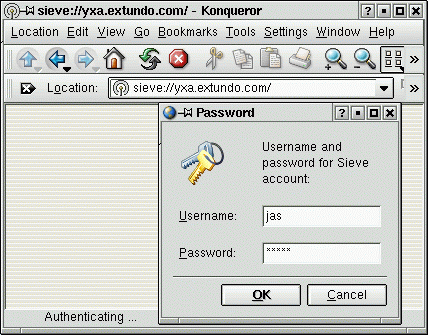
This page contain information about a package that implement remote Sieve management for KDE (a "KIO slave").
If you do not know what Sieve or KDE is, I suggest using the following resources.
Note! If you use Emacs, you might want to be interested in my Emacs sieve package as well.
This package is developed in the kdenonbeta CVS module. To
check out the kio_sieve directory, follow this (hit enter
for the password):
$ cvs -d :pserver:anonymous@anoncvs.kde.org:/home/kde login Logging in to :pserver:anonymous@anoncvs.kde.org:2401/home/kde CVS password: $ cvs -d :pserver:anonymous@anoncvs.kde.org:/home/kde co -l kdenonbeta $ cd kdenonbeta $ cvs co admin $ cvs up -dP kio_sieve ...
KDE has more information on using and building from CVS.
You can browse the source using the KDE CVS Web.
Redirect discussions to the kde-devel mailing list, see the KDE mailing list pages.
Connect to the server (via e.g. bookmark) and enter credentials:

Server content displayed in Konqeuror (size indications not available, protocol doesn't support it):
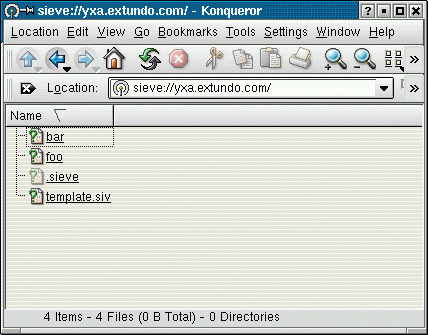
Clicking on one of the files invoke the KWrite application (unfortunately right now you need to enter your credentials again, and a separate connection is opened):
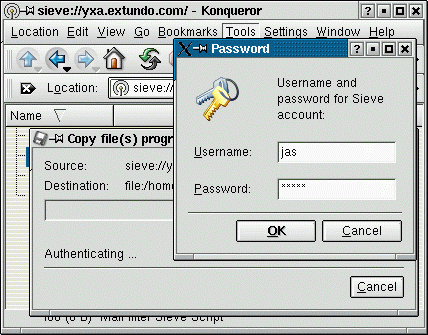
Edit the script in KWrite:
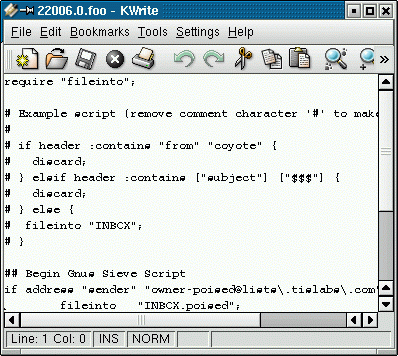
Quiting KWrite offers you to upload the script to the server:
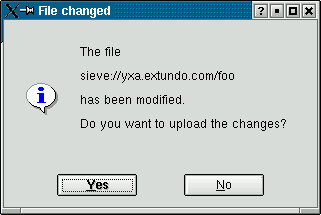
You may wonder about how to set the active script. It is currently set by chmod:ing the script you want to be active with the "x" unix mode bit. The server makes sure at most one script will have the "x" bit set.